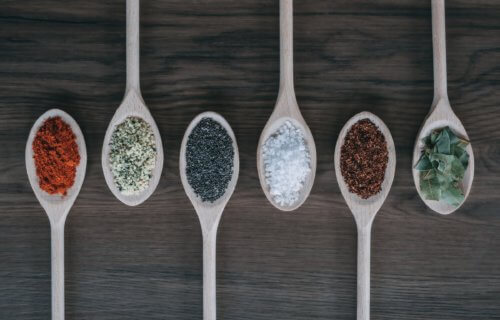PULLMAN, Wash. — A dash (or three) of salt can add some much-needed flavor to a bland meal. Unfortunately, studies show all that salt is not great for your health — especially among older adults. Too much sodium can raise blood pressure considerably, which can increase the risk of heart attack and stroke. However, researchers from Washington State University may have a tasty way around this problem. Their study finds adding just a pinch of spicy seasonings to a low-sodium meal will make it much easier for older adults to avoid salt.
Researchers assessed saltiness perception among a collection of 39 older individuals via the use of white sauce formulations containing different amounts of salt and a number of added spices and seasonings. The team notes they conducted their research prior to the COVID-19 pandemic, a virus connected to the loss of taste in some patients.
The experiment showed that adding just a small amount of chipotle seasoning to the white sauce made it much more difficult for participants to tell the difference between their high-sodium and low-sodium meals. While chipotle worked well, adding herbs such as basil leaves, garlic powder, or coarse ground pepper did not produce the same effect. In these cases, participants could tell the differences in sodium levels fairly easily.
“We were working specifically with a population of older adults to see if we could reduce the amount of salt in a product and then tailor it to their tastes,” says study leader Carolyn Ross, a professor of Food Sciences at WSU, in a university release. “This is important because the ability to taste and smell is known to weaken with age, and weaker perception of salty flavors may induce people to season their food with excessive salt, which may increase their risk of cardiovascular disease.”
Too much medication can dull the taste buds
The white sauce used for this research is a common ingredient in ready-to-eat Cajun chicken pasta meals. Each participant had to try three different versions of the sauce at five different salt concentrations. One version featured no added herbs, the second contained only herbs, and the third had both herbs and some chipotle seasoning. The version containing both herbs and chipotle seasoning made it quite difficult for the group to gauge the meal’s sodium levels.
Additionally, study authors examined each person’s oral and olfactory (sense of smell/nose) health. They gathered information on any and all medications the group was taking, as well as any pre-existing and potentially relevant health conditions participants had. The findings revealed a link between poor oral health and the amount of medication a person uses. Researchers say this may be because of less robust saliva production, but the exact cause is still unclear.
Study authors are already planning a larger follow-up study involving more diverse sodium concentrations and other herb and spice combinations.
“To date, a clear relationship between taste loss, and thus higher taste thresholds, and eating behavior remains to be established,” Prof. Ross concludes. “So, we are investigating a bunch of different possible factors.”
The findings appear in the journal Food Quality and Preference.
